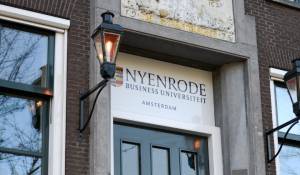There's a not a massive gap in the quality of the students of the outcomes. IESE is generally ranked slightly above HEC but, for example, this year HEC is higher. However, IESE is way harder and heavier than HEC. Generally, it's very hard to get into the grandes ecoles, and when you are there it's taken for granted that you are smart. Your role there is to accelerate, acclimatize, contextualise, specialize and network. IESE is harder work, and the students can't avoid their weaknesses, be that quant work or group work. In different ways, that different is also one of managerial cultures between their countries. However, it also reflects the division of labour between IESE and ESADE which is reflective of the difference between those schools owners, Opus Dei and the Society of Jesus.
Indeed, the long programme at IESE is the traditional format and is the better one for changers, those who are shifting country, role, industry. The track without an internship is better for those who are accelerating on the same path. That's true everywhere, of course. The longer the format, the more chances you have to make a transition.
In a nutshell - Generally, IESE is a better school for finance. http://rankings.ft.com/businessschoolrankings/top-mbas-for-finance-2018
Duncan, I was reading this informative note again, and was wondering if you could share why you think HEC (for its MBA program) follows a sort of teaching and learning environment that's more suited to, let's say, the Grande Ecole students? Based on your note, it appears IESE does everything HEC does, and more.
Also, how should one be able to extract the sort of information you share here? I mean, I've attended several schools' webinars, and while some distinctly stand out in a few aspects, it's quite difficult to gauge and compare them completely. Of course, speaking to current students and former students is great, but barring those who do an exchange, pretty much of the input one would receive would be biased. Any tips on how to 'search better'?
Thank you!



